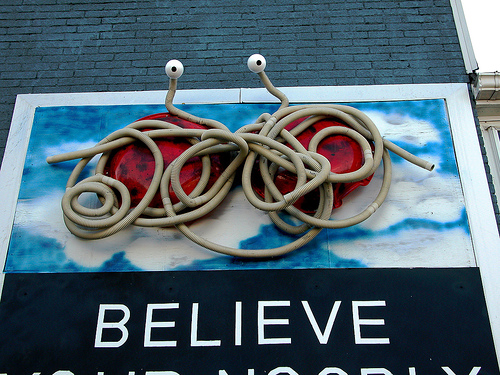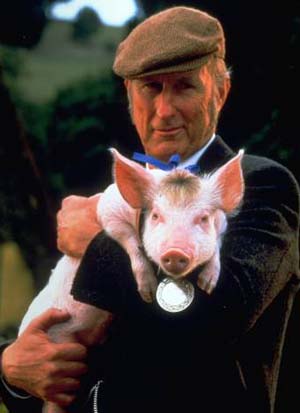Advice I Wish I’d Been Given When I Started … Part 2
This continues our series asking some seasoned, experienced authors what three key bits of advice they would give new writers that they wished they’d known when they started writing. We all wish someone would be willing to give us gems of wisdom that would help us avoid wasting precious time and making serious career mistakes. So I hope hearing the advice from these various authors will help you in your writing journey!
Today’s guest post is by Katherine Bolger Hyde, who is a professional copyeditor and has written numerous novels.
Congratulations! You’ve embarked on the winding, bumpy road of being a writer, following a rainbow only you can see in hopes of finding a pot of gold at the road’s end. I’ve been plodding down this road for ten years, and I’d like to share with you a few things I’ve learned that might help smooth out a few of the bumps.
1. Don’t work in isolation.
Writing is, by its nature, primarily a solitary pursuit. But that doesn’t mean you have to isolate yourself from the rest of the world while you’re writing. You need other people for so many reasons: support, material, feedback, encouragement. Most of all, you need relationships just to keep you human.
When I started my first novel, almost nobody knew about it. I didn’t tell my father, who was living with us at the time, until I was in the late revision stage. Before I could get the book polished to the point I felt confident showing it to him (he was a lifelong editor and lover of great literature, so his standards were high), he passed away. I’ve always regretted that he never got to read my work.
As soon as you feel even close to comfortable with the idea, enlist the support of those friends and family members who have proven supportive of your dreams in the past. Then look for some other writers to connect with. Unless you live in the boondocks, you can probably find a local writing class, conference, or group you can join. If that fails, you can always connect with like-minded writers online.
But do be sure to connect. I promise you, you will need those people at so many points and in so many ways throughout your writing journey. And it needn’t be a one-way street—even a beginning writer can offer support and encouragement to a senior writer. No one outgrows the need for a kind word and a pat on the back.
2. Don’t send your work out too soon.
The rush you get from finishing your first novel can be tremendous. The glow of creation can mask all your manuscript’s flaws; it may look as perfect to you as a newborn baby’s squashed and purple face looks to its parents. You may be tempted to take it out and show it off to the world as soon as you’ve rested up from delivery.
But trust me, it isn’t as perfect as you think it is. If you show it only to your mother and your best friend, they may ooh and ah like proud grandparents. But that doesn’t mean your manuscript is great; it only means they love you.
Here’s where you really put your network to the test. Out of all those fellow writers you’ve connected with, find one or a few with whom you really click and ask them to give you an honest critique. You will soon discover you still have a lot of work to do before your baby is ready to see the world.
Don’t stint on that work. It’s crucial. Even if it means starting from scratch. And when you’ve gotten all the help you can from your first readers, find some more readers and send the manuscript out again. Rinse and repeat, and don’t let an agent or publisher see it until that novel is squeaky clean.
I spent about four intensive months writing the first draft of my first novel—and the next four years revising it. I sent it out way too soon and burned some boats that could have carried me nicely if I’d waited. That novel will probably always be the little handicapped child that the Victorian parents hide away in the nursery, fearing it will bring shame on the family.
3. Don’t expect anything to happen overnight.
This potentially quite long revision process is only the first example of the great writing/publishing maxim:
Everything takes longer than you think it will.
It’s been estimated that it takes 10,000 hours of practice to perfect a skill. For a writer, I’ve heard that translates to one million words. For most people, writing those words takes years.
If you go the traditional publishing route, the next step is usually to send your work out to agents. Writers used to whine if an agent didn’t respond within three months. Now, it’s not unusual for an agent to hold your work for a year, and many will not respond at all unless they’re interested.
Let’s say you find an agent who is willing to represent you. Now you have to wait for a contract, wait for the agent to edit your manuscript, do your revisions, wait for the agent to send it out, wait for editors to respond. If the book is accepted—which could easily take a year or more—it enters the production machine, which with most publishers eats up another one to three years.
Even after publication, the waiting isn’t over. It could be up to nine months before you get your first royalty statement. And if you received an advance, it may take years to “earn out”—that is, to earn enough in royalties to offset the amount of the advance so that you actually get a check with that statement.
Of course, if you self-publish, you can cut out a lot of this waiting. But then—even if you’ve hired professionals to do a stellar job with editing and design, which you’d better—you run the risk of waiting around forever for anyone to buy your book. Hundreds of thousands of books are self-published every year, and it takes an enormous amount of effort and luck to get your book the attention it deserves.
How do you keep from tearing your hair out while bouncing off the walls of your padded cell while you’re doing all this waiting? Two things I know of: (1) manage your expectations and (2) keep writing. If you don’t love writing enough to keep going even when it looks like your books may never see the light of day, do yourself a favor and get out now.
I’m currently revising my fifth novel with no publishing contract in sight (though I do have cause for hope, finally, after ten years of writing). I keep myself going by giving myself new challenges with every project and by staying connected with my wonderful network of writing friends (including Susanne!). I have to keep going, because I don’t like the person I become when I’m not writing.
In spite of everything, if writing is your true love, it will be worth it. You may not find a pot of gold at the end of that winding, bumpy road, but you’ll have the rainbow—and that’s what really counts, after all.
 Katherine Bolger Hyde is the author of the picture book Lucia, Saint of Light (Conciliar Press, 2009) and five prepublished novels: one YA fantasy, three contemporaries set in her beloved redwood country, and a mystery. You can read more about her work at her website here.
Katherine Bolger Hyde is the author of the picture book Lucia, Saint of Light (Conciliar Press, 2009) and five prepublished novels: one YA fantasy, three contemporaries set in her beloved redwood country, and a mystery. You can read more about her work at her website here.












Great insights and encouragement in there, Kate! Thanks for sharing and thanks to Susanne.
Just what I need to read right now. I have three projects which I’m working on and need to find a friend to look over them or at least one. Extremely useful advice, thank you!
I really enjoyed this post. My mom and my best friend were literally my first readers, and as you say they do like me. I had two writer friends read it, and their comments were valuable. I just finished outlining my next revision.
Thanks again,
Sarah
I can say ditto on all 3 of these! I learned them the hard way too! Honestly, when I was totally alone, I got nothing done.
I hope I can find Part 1!
Thank you for a great post and wonderful insights from Katherine Bolger Hyde 🙂
I personally struggle a little with connecting with other writers for my fiction writing and appreciate her reasoning about why it is vital. I will attempt to make more of an effort in the future….when it’s ready!!! 😉
Thanks again!
Ali Jayne 🙂
Very enlightening. As a new writer, these are the great tips needed.
Simple pointers yet important. I think all of us have a shred of hope in us, in spite of knowing that writing doesn’t ‘shine’ overnight.